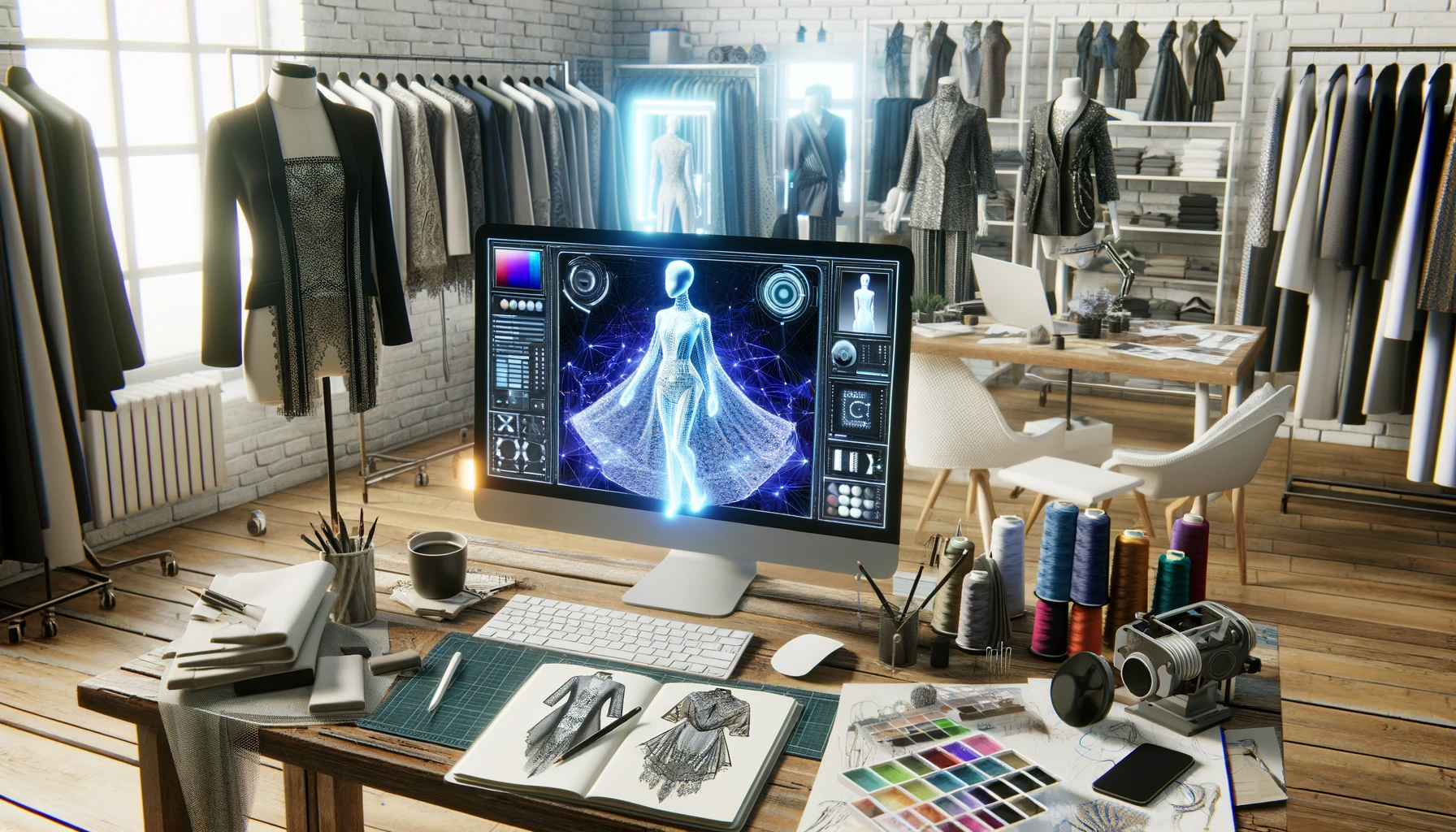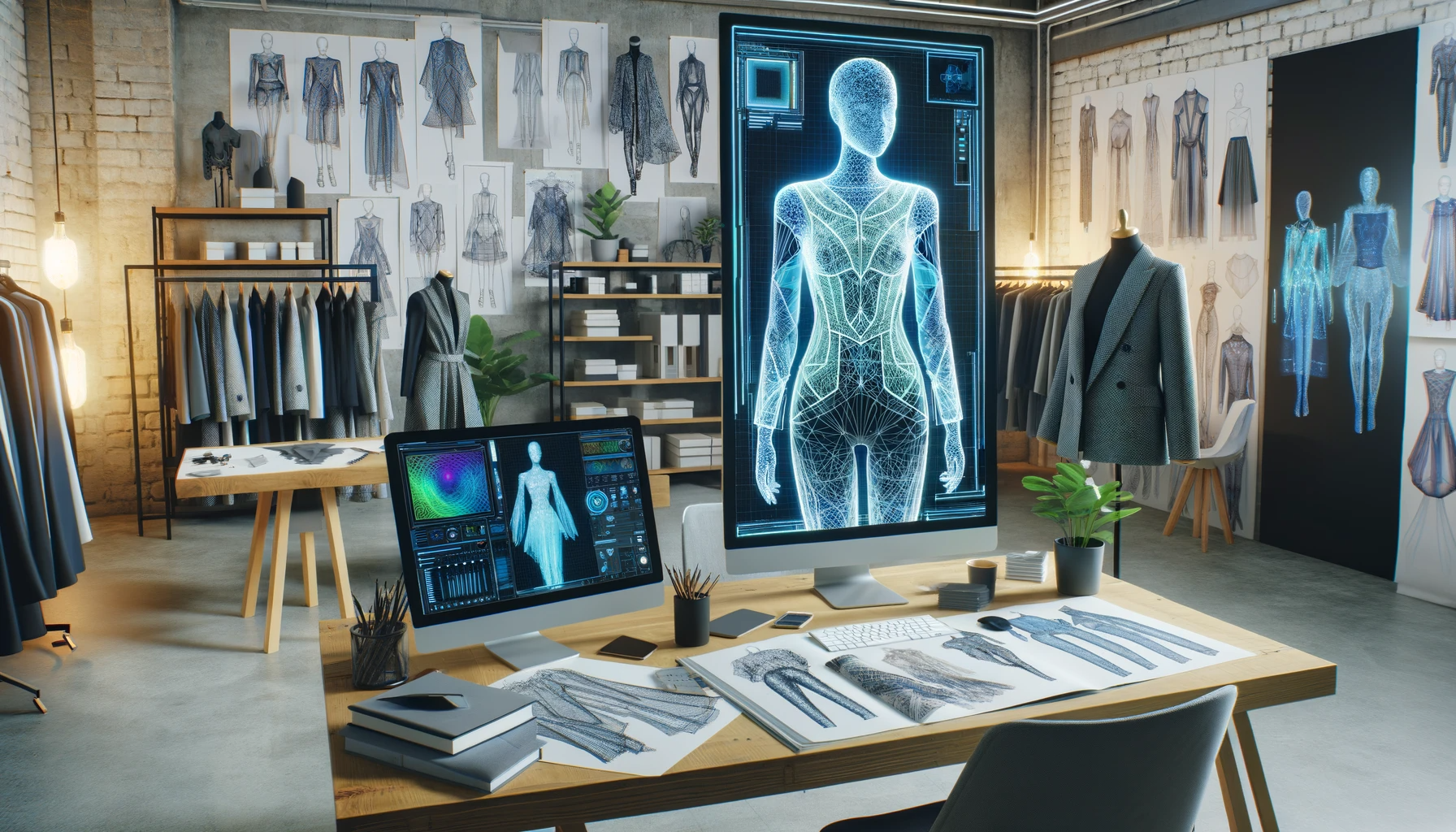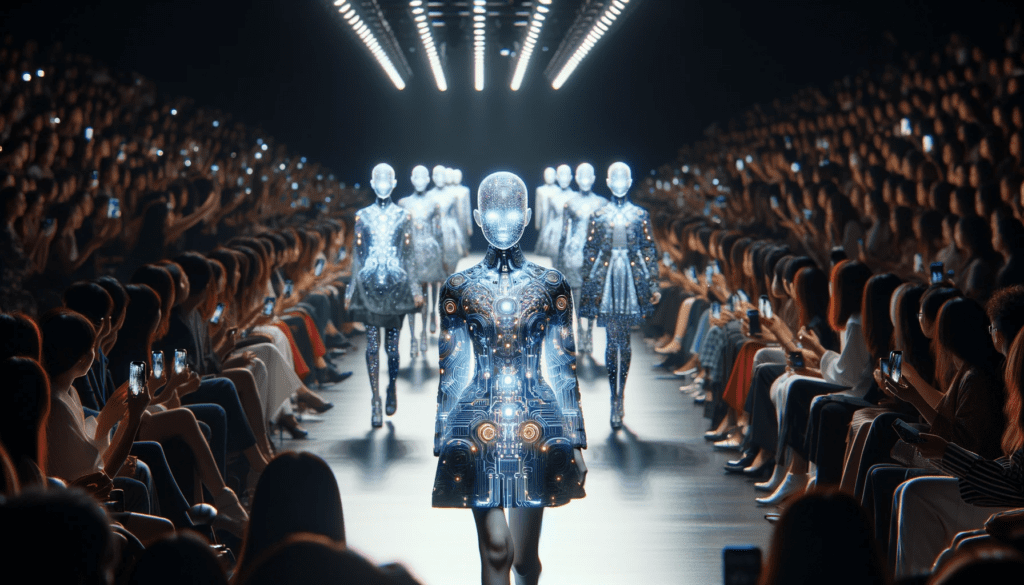The world of fashion has always been characterized by its constant evolution, reflecting changing tastes, cultural shifts, and technological advancements. In recent years, a new force has emerged to reshape the fashion landscape: Artificial Intelligence (AI). This cutting-edge technology is not only influencing but also revolutionizing various aspects of the fashion industry, from design processes and trend forecasting to consumer experiences.
The fusion of AI and fashion represents a dynamic synergy between creativity and innovation. It bridges the gap between the artistic expressions of designers and the data-driven precision of algorithms. As we embark on this exploration of AI’s influence in the fashion world, we will delve into three key dimensions: the transformation of design processes, the revolution in trend forecasting, and the enhancement of consumer experiences.
In this article, we will uncover how AI is not only altering the way fashion is created but also how it is experienced and consumed. From inspiring designers with novel ideas to predicting the next big trend and providing personalized shopping experiences, AI is leaving an indelible mark on the fashion industry. It’s a journey into a world where creativity meets technology, and the future of fashion is being reshaped before our eyes.
AI-Powered Design Processes in Fashion

In the dynamic world of fashion, staying ahead of the curve is crucial. Traditional design processes often face challenges related to time constraints and the sheer volume of work. AI is revolutionizing fashion by offering inspiration and innovation. It can analyze vast datasets to generate design concepts and ideas, identify trends, and provide valuable insights to designers. AI-assisted design tools streamline the creative process, allowing for virtual experimentation and suggestions for design modifications. Fashion brands and designers are leveraging AI to bring fresh, innovative designs to market faster than ever.
Revolutionizing Trend Forecasting
Trend forecasting is essential in the fashion industry, influencing collections, marketing, and retail decisions. Traditional methods relied on intuition, experts, and historical data. AI is transforming trend analysis by analyzing vast datasets, social media trends, and cultural signals. It provides accurate insights into upcoming trends, helping fashion brands stay ahead of the competition. AI-driven trend forecasting has become a cornerstone of the industry.
AI-Enhanced Consumer Experiences
AI is improving the shopping experience by offering personalized recommendations, virtual try-ons, and sizing recommendations. Chatbots and AI-driven customer service provide instant assistance and support. AI algorithms analyze consumer behavior, preferences, and past purchases to offer tailored product suggestions. These AI-driven enhancements make fashion shopping more convenient and enjoyable, increasing customer satisfaction and loyalty.
AI-Powered Design Processes in Fashion
In the dynamic world of fashion, staying ahead of the curve is crucial. Traditional design processes often face challenges related to time constraints and the sheer volume of work. AI is revolutionizing fashion by offering inspiration and innovation. It can analyze vast datasets to generate design concepts and ideas, identify trends, and provide valuable insights to designers. AI-assisted design tools streamline the creative process, allowing for virtual experimentation and suggestions for design modifications. Fashion brands and designers are leveraging AI to bring fresh, innovative designs to market faster than ever.
Revolutionizing Trend Forecasting
Trend forecasting is essential in the fashion industry, influencing collections, marketing, and retail decisions. Traditional methods relied on intuition, experts, and historical data. AI is transforming trend analysis by analyzing vast datasets, social media trends, and cultural signals. It provides accurate insights into upcoming trends, helping fashion brands stay ahead of the competition. AI-driven trend forecasting has become a cornerstone of the industry.
AI-Enhanced Consumer Experiences
AI is improving the shopping experience by offering personalized recommendations, virtual try-ons, and sizing recommendations. Chatbots and AI-driven customer service provide instant assistance and support. AI algorithms analyze consumer behavior, preferences, and past purchases to offer tailored product suggestions. These AI-driven enhancements make fashion shopping more convenient and enjoyable, increasing customer satisfaction and loyalty.
Sustainability and AI in Fashion
The fashion industry is increasingly focused on sustainability. AI plays a crucial role in this regard by optimizing supply chains, reducing waste, and promoting eco-friendly materials. AI-powered solutions help fashion brands make informed decisions that align with environmental goals. From sourcing sustainable materials to minimizing carbon footprints, AI contributes to a more sustainable fashion industry.
Ethical Considerations in AI and Fashion
The rise of AI in fashion brings ethical considerations to the forefront. Issues related to data privacy, algorithmic biases, and their potential impact on employment within the industry require careful examination. Fashion brands and tech companies are working to address these concerns and ensure ethical AI practices are implemented.
The Future of AI and Fashion
The future of AI in fashion holds exciting possibilities. Emerging technologies like AI-generated fashion collections and AI-powered fashion influencers are on the horizon. AI has the potential to make fashion more accessible, diverse, and inclusive by embracing technology for the benefit of all fashion enthusiasts.

Conclusion
In the ever-evolving world of fashion, Artificial Intelligence has emerged as a transformative force, leaving an indelible mark on design processes, trend forecasting, and consumer experiences. As we conclude our journey into the intersection of creativity and technology, it is evident that AI’s influence in fashion is not just a passing trend but a permanent paradigm shift.
AI-powered design tools have empowered fashion creators to explore new horizons, generating fresh ideas and streamlining the creative process. Trend forecasting, once reliant on intuition, has now become a data-driven science, enabling fashion brands to anticipate shifts in style with unprecedented accuracy. Meanwhile, consumers are enjoying enhanced shopping experiences, with personalized recommendations, virtual try-ons, and AI-driven customer service that cater to their individual preferences.
Sustainability has become a paramount concern in the fashion industry, and AI is at the forefront of efforts to reduce waste, optimize supply chains, and promote eco-friendly practices. However, this technological advancement also brings ethical considerations, such as data privacy and algorithmic biases, which necessitate vigilant oversight.
As we look to the future, the possibilities seem boundless. AI-generated fashion collections and AI-powered fashion influencers are poised to revolutionize the industry. The democratization of fashion through AI promises to make it more accessible, diverse, and inclusive for all.
In conclusion, AI has seamlessly woven itself into the fabric of the fashion industry, augmenting human creativity with data-driven precision. This dynamic synergy is not merely changing how fashion is conceived and consumed; it’s shaping the future of an industry that thrives on innovation and reinvention. The runway ahead is illuminated by the fusion of artistry and technology, where fashion’s evolution knows no bounds.
